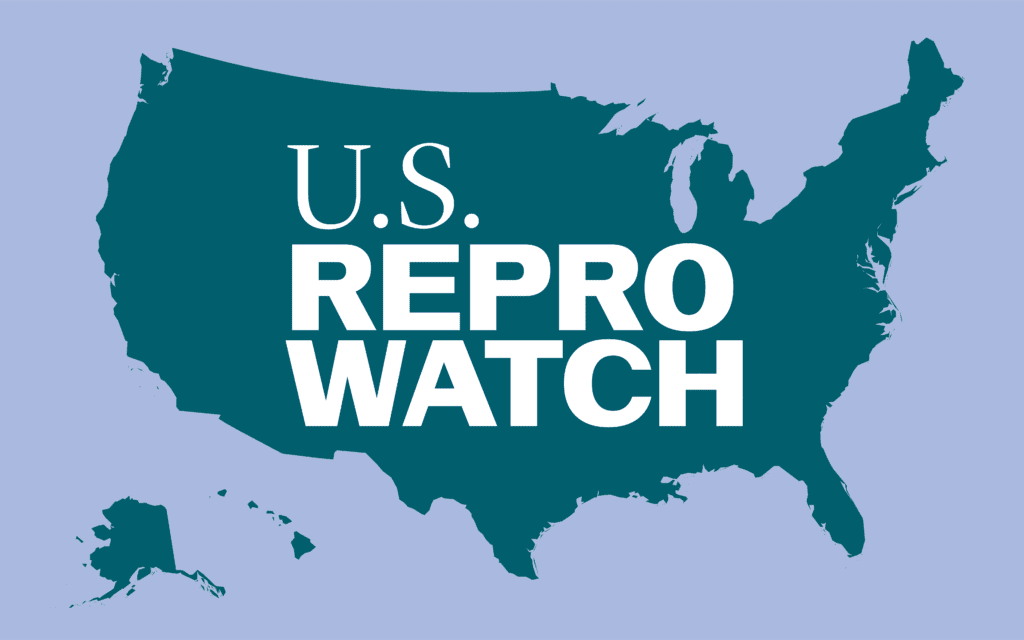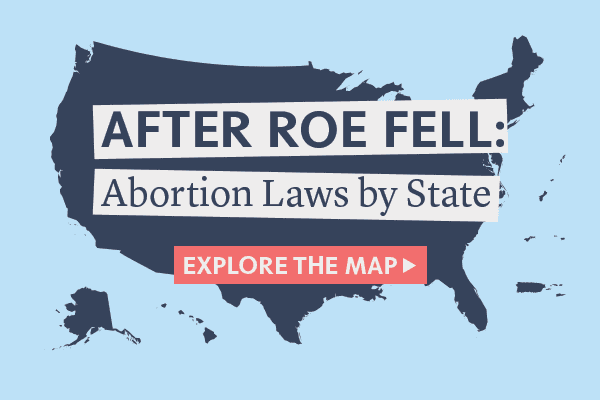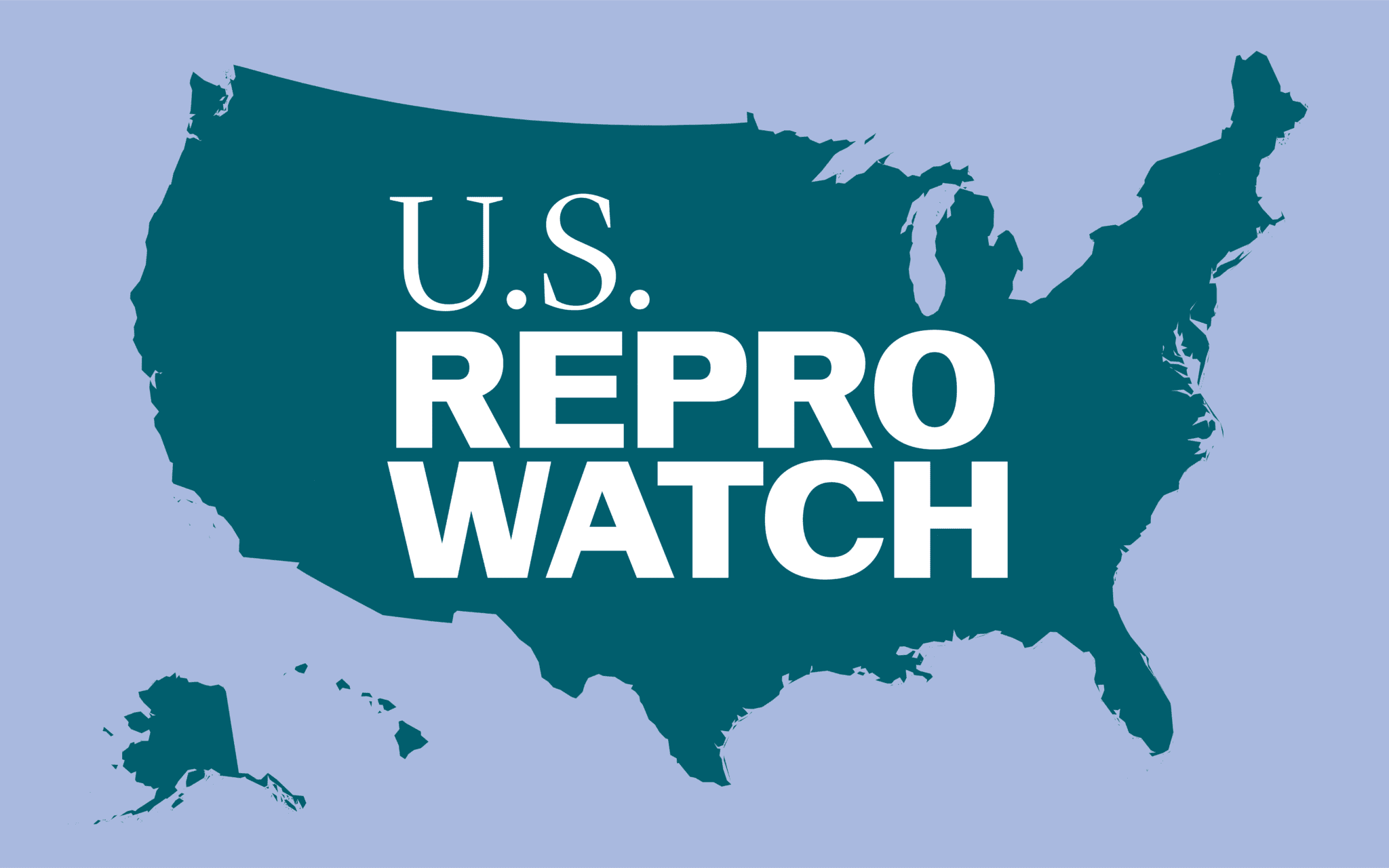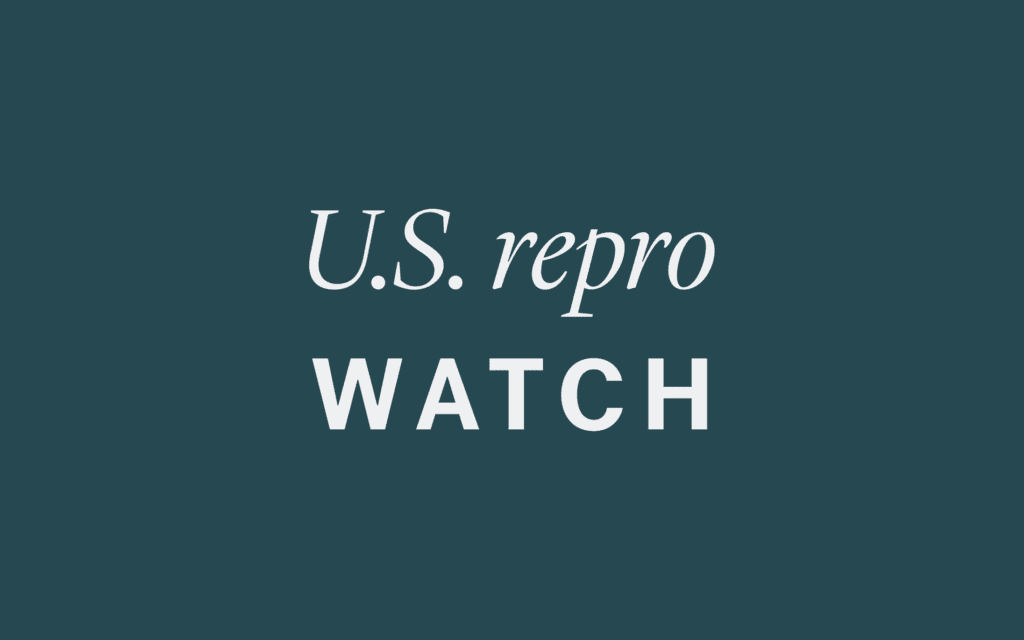U.S. Repro Watch, October 19
Independent pharmacies begin dispensing abortion pills, New Jersey to offer over-the-counter contraceptives, and other news on U.S. reproductive rights.

U.S. Repro Watch provides periodic updates on news of interest on U.S. reproductive rights. Here are a few recent items you won’t want to miss:
1. Independent pharmacies across the country have started to dispense abortion pills under rules created by the Biden Administration earlier this year.
- Earlier this year, the Food and Drug Administration (FDA) permanently removed the in-person dispensing requirement for the drug, mifepristone, and allowed retail and online pharmacies to directly provide medication to patients.
- Branches of major pharmacy chains are expected to follow the move by the independent pharmacies, which will make the medication more accessible to millions of people nationwide.
- In November 2022, anti-abortion groups sued the FDA, attempting to eliminate access to the abortion medication nationwide. The U.S. Supreme Court may hear the case this term.
2. New Jersey state officials announced that contraceptives will be available over the counter without a prescription by spring 2024.
- After two state boards advanced rules under a law enacted in January, pharmacists will be able to provide oral, transdermal or vaginal contraceptives such as birth control pills and patches, vaginal rings and diaphragms without a prescription.
- New Jersey will join about 30 other states that permit pharmacists to prescribe contraceptives.
3. A federal appeals court temporarily limited Idaho’s ability to enforce its near-total abortion ban in medical emergencies.
- The Ninth Circuit Court of Appeals said on October 10 that it would weigh in on the legal challenge to the ban brought by the Biden administration.
- Idaho’s abortion bans have caused a health care crisis in the state, with doctors leaving the state in droves.
- In September, the Center for Reproductive Rights filed a lawsuit challenging the limited scope of the medical exceptions to the state’s bans.
Learn more.
Where do U.S. state abortion laws stand now?
Where is abortion banned? Where is it protected? Get all the details with this valuable tool.
4. Florida’s Attorney General asked the state supreme court to block a proposed constitutional amendment seeking to protect abortion rights.
- Although abortion-rights supporters have so far gathered more than 400,000 signatures to get the measure on the ballot next year, the state attorney general notified the Florida Supreme Court that she plans to argue that the amendment’s language is invalid, although she didn’t explain why.
- The proposed amendment would bar laws that restrict abortion “before viability or when necessary to protect the patient’s health, as determined by the patient’s healthcare provider.”
5. State officials in Wyoming asked a court to rule that the state’s total abortion ban is constitutional, claiming that abortion is not health care.
- Abortion providers argue that abortion is health care and access is protected by the state constitution, which explicitly protects the right to make one’s own health care decisions.
Did you know?
A study by the Guttmacher Institute found that North Carolina’s recently enacted abortion restrictions have severely reduced abortion access in the state. The study, published October 11, reports that abortions in the state plummeted by 31% the month after the new measures took effect on July 1. The new restrictions include a ban on abortion care after 12 weeks of pregnancy and an in-person requirement for state-mandated counseling, which forces patients to make a separate trip to a health care facility at least 72 hours before the abortion.
An earlier study by Guttmacher found that in the first six months of 2023, before its new restriction took effect, North Carolina saw a 55% increase in abortions compared to 2020.
“The steep drop we see in North Carolina’s July abortion numbers likely represents both North Carolinians and out-of-state patients who are no longer able to access vital reproductive health care due to arbitrary gestational bans and medically unnecessary barriers,” said the report’s lead researcher Isaac Maddow-Zimet.
U.S. Repro Watch
Read previous U.S. Repro Watch posts.
Coming Up
October 31: Hearing over Alabama Attorney General’s Threats to Sue Abortion Helpers
- In July, health care providers and an abortion fund filed a lawsuit against the state attorney general over his threats to prosecute those who help Alabamians travel across state lines for abortion care.
- The plaintiffs have asked the court to rule that the state cannot criminally charge those facilitating or providing information about out-of-state travel for abortion care.
November 28: Texas Supreme Court Oral Arguments in Zurawski v. State of Texas
- The state appealed an August 4 ruling by a Texas district court judge blocking the state’s abortion bans as they apply to dangerous pregnancy complications.
- Zurawski v. State of Texas was brought by the Center on behalf of Texas women denied abortion care and Texas physicians.



